So lies aghast, civilizational tides
Drowned in data, starving for wisdom
Crowded atoms, interdependently linked
Through intersections of infinitely fine mesh
One kindred spirit, lights the rest
In fractal evolution, lies renewal
Between the silence of cracks,
An opportune point of agentic leeway
In the world of complexity, to mould our fate
Civilization tides, institutional staples
For they hold the promise
For decline, stagnation, or prosperity
Knowledge and technology advanced over centuries; most of the population uses the latest technology with no clue to its origins or how to build it themselves. Do you know how to mine materials, manufacture, and assemble electrical circuits for your state-of-the-art computer or cellphone? Generate over 50,000 kilowatts of electricity per year for your needs, which amounts to burning over 10 tons of wood if you had no access to fossil fuels? Concoct medicine to heal an infected wound to prevent the poisoning of your blood?
Scientific developments and technological innovation are not inevitable and guaranteed to follow an upward trajectory, nor are they enough to advance civilization.
Cultural and economic factors are crucial in determining if innovations get manufactured or outlawed, if they flourish or falter. The social fabric of tacit and explicit conventions and norms that allow for civilized society and commerce make up healthy soil that will enable seeds of progress to grow. Knowledge is collective and distributed in a population. The same applies to a technology that depends on an extensive network of other technologies interlinked and interdependent; both knowledge and technology are fragile.
By examining the history of civilizations, even vibrant societies can lose the incentives to improve and plunder into stagnation and collapse. If disrupted, a complex system is more difficult to reestablish.
We can portray a macro picture if we widen our evaluation of history from decades to centuries. China achieved technological advances nowhere seen in Europe until 1000 years later, bringing inventions like the compass, gunpowder, papermaking, and printing, among other technologies.
As Europe reemerged from its Middle Ages with the start of the Renaissance, Chinese progress faltered and then ground to a halt. Little by little, European society progressed through the Renaissance, the agricultural and scientific revolutions, the Enlightenment, and the Industrial Revolution. One can only be in awe of how improbable the set of linked circumstances led to what we experience today.
From Wang Zhen's book Nong Shu in 1313. Arranged by a rhyming scheme to improve typesetting speed, the device has a revolving table typecase with individual movable type characters.
Similar to a silent cancer cell, civilizational collapse does not precipitate; it follows a very gradual decline until it reaches a breaking point that makes it appear sudden.
During the fall of the Roman Empire, a poet named Rutilius Namatianus, noted that the road conditions were deteriorating. Because of lack of maintenance, roads declined as of the fifth century—little did he suspect these were signs of a failing empire.
The Bronze Age collapse was even more surprising. Within fifty years, cities in the eastern Mediterranean world were destroyed, many of them never occupied again. There was a collapse of the system that led to a reversal in culture. Ancient cities abandoned, trade routes lost, and literacy declined throughout the region.
We have lost many technologies from ancient civilizations as a result of conflict, stagnation, and decline. Whether it’s the Egyptian and Mayan pyramids, the fascinating Antikythera mechanism, an ancient hand-powered Greek analog computer, created around 150-60 BC, or the 4th century Roman Lycurgus Cup made of a dichroic glass that changes colour when light passes through it.
Antikythera mechanism, an ancient hand-powered Greek analog computer, created around 150-60 BC.
If we were to test the state of our current society, where do we find ourselves in that civilizational timeline?
Generations believe to be better than earlier ones—a blind spot. Your answer could claim that we are at the frontier of progress. The high priest's solemn, boldly claiming technological innovation is growing at an exponential rate, a recalcitrant incantation. Or you may believe the collapse of civilization is imminent; battling through your nihilistic dread and resorting to absurdity and hopelessness as consolations to your woes.
As you battle your thoughts, one might hear the silent but persistent whisper of a society displaying signs of stagnation—a middle state between progress and decline. Similar to how water reaches critical opalescence at a temperature of 375 degrees Celsius, indecisive to be a gas or a liquid. A sparkling of multicoloured radiance appears, but short-lived—an unstable state.
Many of us fall prey to illusory progress, duped by false signalling. From individuals, startups, institutions, cities, nations—all follow a power law. Each of us underestimates the number of dysfunctional entities in circulation.
Counterintuitively, it’s the longing for others’ approval that the cult of fake originality and differentiation has such a powerful appeal. In professional wrestling, kayfabe portrays staged events as real; the competition, rivalries, and relationships between players do not appear staged or predetermined. This is a fitting analogy to the games being played in our society. Players and institutions in an ecosystem signal growth, but the majority are at an alarming level of inefficiency and proper functioning—each desperately looking to the other on what to do next. They run in a self-deceptive state, amassing resources, operating on a Nash equilibrium of competency, adequate not to fail, but cowardly enough not to innovate.
Perfect order and stability bring stasis and fragility, embracing of a small dose of disorder for a more resilient complex system functions as an immune system for civilization to develop antibodies against serious threats.
Memetic glitches of cultural evolution have pushed society through. If ingenuity ceases to be a rebellion against authority, then it does not deserve the talents of our brightest minds, as Dyson would say.
More powerful thinking programs and machines are required to synthesize and derive patterns in the world to catch glimpses of branching alternative histories of the future. This is no minor feat; it’s as complex as attempting to solve the three-bodied problem, which operates under deterministic chaos. Chaos creates information and pathways of disorder, which nature favours just a few. When dynamical and complex systems are chaotic, they bring about fractal patterns with a pathological sensitivity to initial positions.
Mandelbrot set producing complex fractal shapes.
A utopia is a dystopia; striving in a world of complexity makes our world infinitely more beautiful. As the Russian writer Mikhail Bulgakov, describes in The Master and Margarita, “What would your good do if evil didn’t exist, and what would the earth look like if all the shadows disappeared? After all, shadows are cast by things and people. Here is the shadow of my sword. But shadows also come from trees and living beings. Do you want to strip the earth of all trees and living things just because of your fantasy of enjoying naked light? You’re stupid.”
A subset of individuals has both the gift and the burden to propel us forward to offset and surmount the negative entropy.
Industriousness, ingenuity, and inventiveness are the most important products of humans’ creative brains. They serve as a counterpoint to the majority’s platitudes for comfort and security with the familiar, and an antidote to the mindless non-sequiturs and tautologies one might encounter with the same reaction as to a stranger’s flatulence. Self-exceptionalism leads to dark places, the maxim de omnius dubitandum (all is to be doubted) holds true even to oneself; creativity and intellect are inseparable from angst, uncertainty, conflict, and despair. As Feynman would say, “it is our capacity to doubt that will determine the future of civilization.” Our duty is to go beyond the first stories we hear, to question orthodoxy, and the supposed wisdom, or madness, of the crowds.
If we can observe the present clearly enough, we shall ask the right questions of the past and the future.
The dreams of our childhood were to have flying cars, spaceships, pollution-free cities. Instead, we masquerade “reform“ with antiquated politics and government of zero-sum rhetoric, not to mention a mathematically and scientifically illiterate yet seemingly knowledgeable citizenry bathing in cheap information, but lacking in attention, and a wide array of bullshit jobs for a “burgeoning” economy.
Like chess, we spend so much time on the openings of a game, rather than on endgame technique. Ideas of ingenuity that might encounter initial resistance can fit harmoniously—a musical note in an orchestra—as the seeds that bring renewal in our institutions. As Bachelard would say, “why should we stop building and moulding the world’s clay about our own shelters? Mankind’s nest, like his world, is never finished. And imagination helps us to continue it.”
Thanks for reading, subscribe to World Creation Society to get antidisciplinary insights and reflections on emerging futures at the intersection of technology, society, and culture.
Show your support
Become a paying subscriber or patron.
Get a one-time hypothetical coffee ☕.
Share the newsletter with your network.

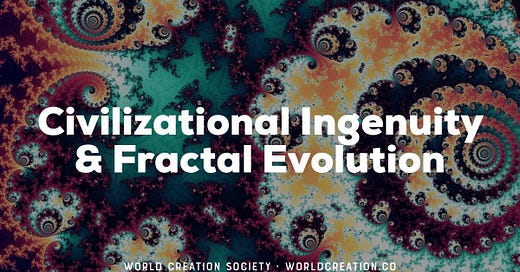




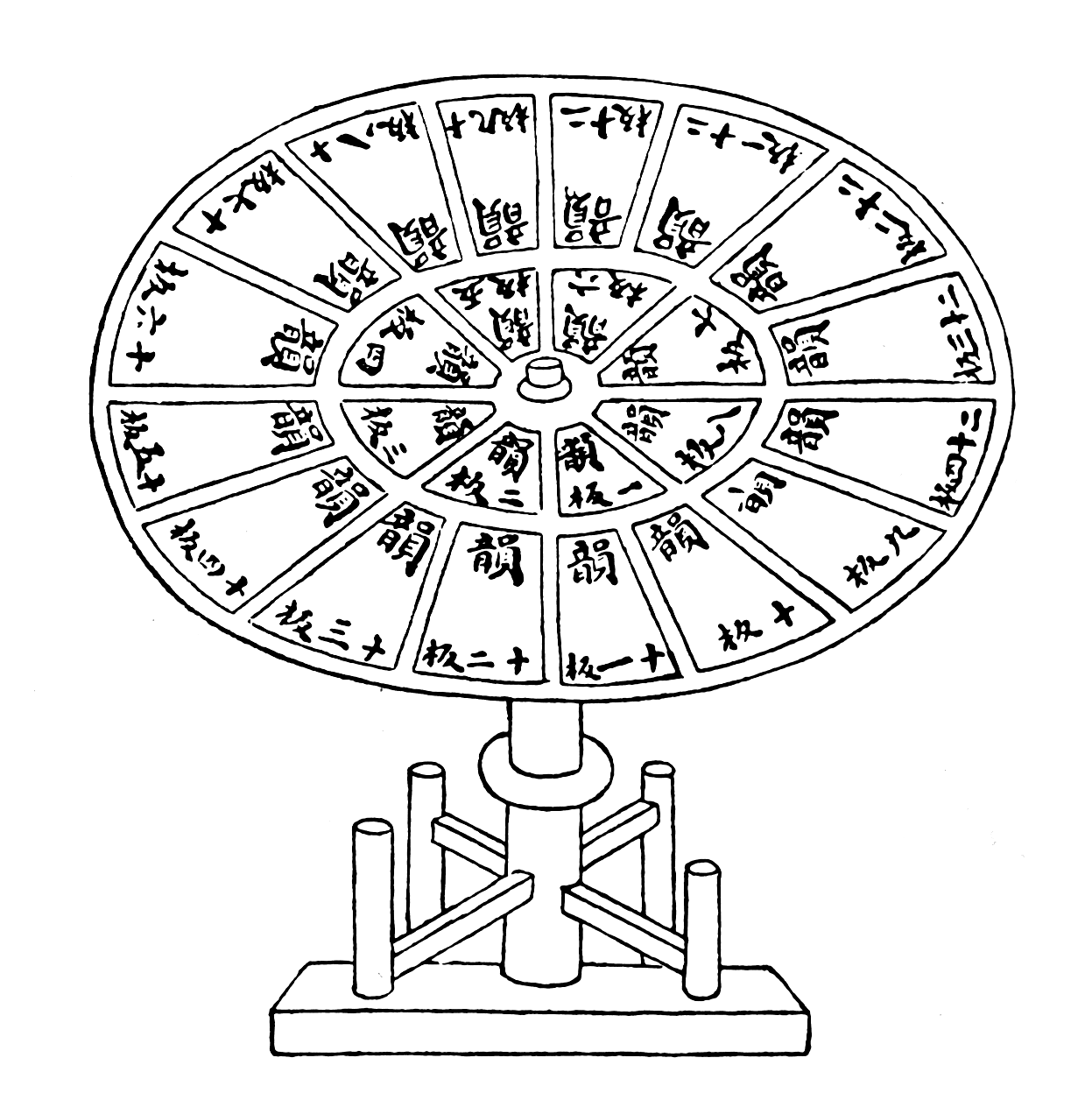

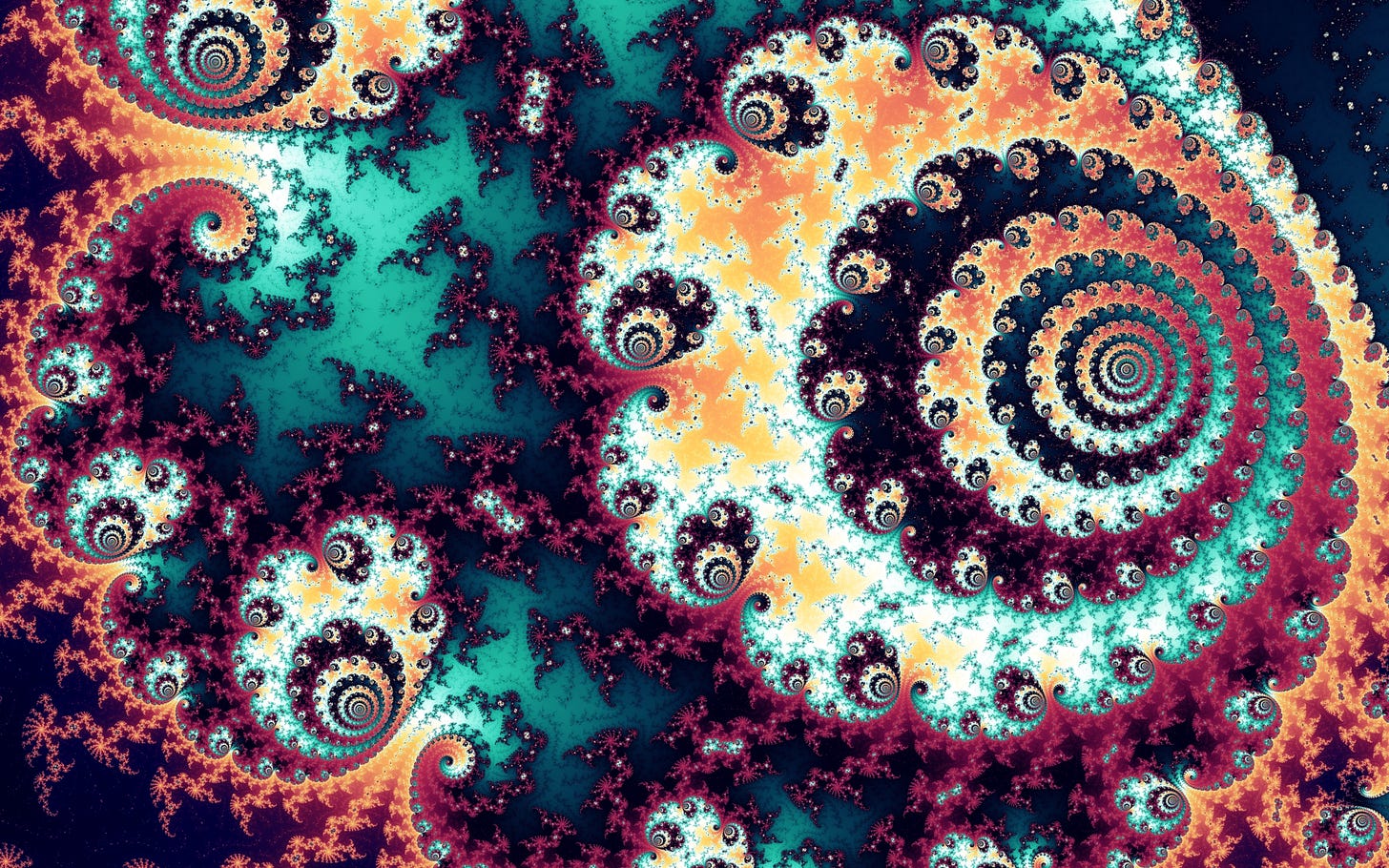
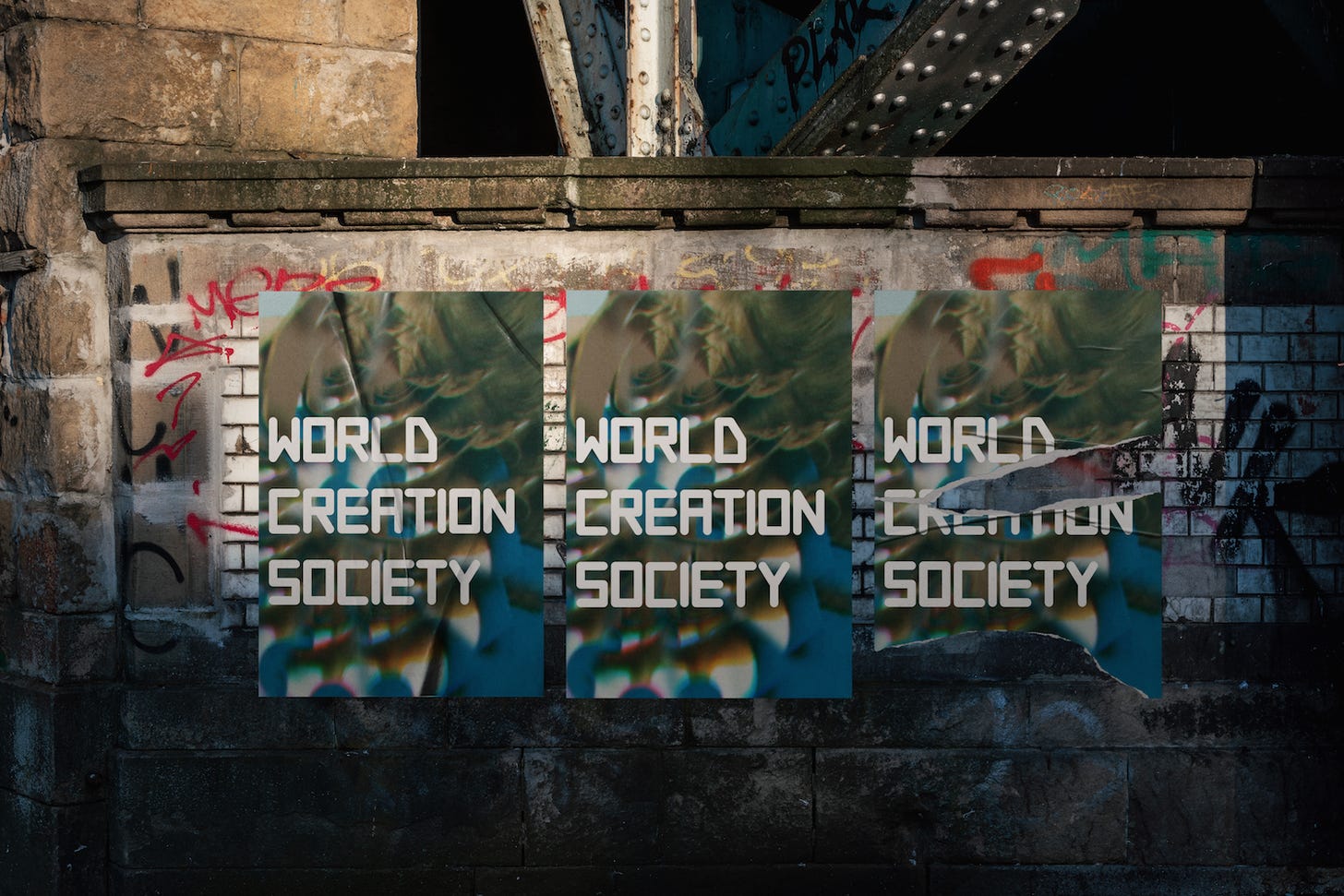


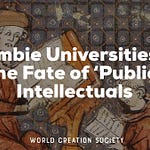


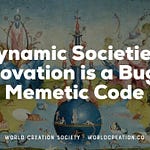


Share this post